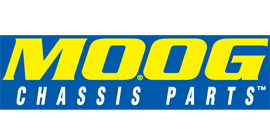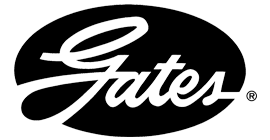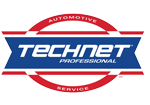
AUTONET TV
Archive for July 2022A Honking Big Jam (Stuck Horn)Posted July 31, 2022 12:11 PMAt one time or another, most drivers honk their horn at someone who might be texting at a stoplight or not paying attention when they're driving. But what happens when you tap on your horn and all of a sudden it won't quit? Everyone's looking at you like you're an angry jerk and all you want to do is turn it off! It helps to know the basics of what's happening when you honk your horn. There's a switch in the steering wheel, of course, and when you press on it, it sends power to a relay which then energizes the horn. Bingo. Sound. When the horn sticks on, one of these parts or the wiring has developed a problem. With the ear-splitting noise inside your cabin, it may be hard to keep your cool, but do your best to stay calm. Try pushing the horn several times; it may un-stick the switch if you're lucky. If not, there are a couple of things you can try. First, if you can, pull your vehicle off the road and into a spot where you're not disrupting traffic. If you feel comfortable rummaging around in your vehicle's fuse box, you might be able to pull the fuse that manages the circuit for your horn system. A hint: the fuse boxes sometimes have a label inside showing which fuse goes to which part of the vehicle. Find the fuse that goes to the horn and pull it out (sometimes there's a fuse-pulling tool inside the fuse box). But many people don't feel like tackling that. Yes, you can drive over to a service facility with the horn blaring (not the best idea). Or call your service facility and see if they might be able to send someone over to where you are so they can shut off the horn. At the shop, a technician can check wiring, switches, relays and other components to find out what's wrong. This is something that should be left to a professional for a couple of reasons. First, repairs around the steering wheel can involve airbags. Second, some horn components may be part of a vehicle's alarm system. The bad news is that your horn may not give you any warning before it starts blaring uncontrollably. But the good news is that a horn doesn't malfunction all that often, and now you have a plan if it does. TJ's Auto Center Inc. Don't Be Shocked (Shock Absorbers)Posted July 24, 2022 10:31 AMIf you've ever ridden down a rough road on your bicycle, you know how hard a ride it can be. Yet drive down the same road in your car, truck or SUV and it miraculously will smooth out the ride. That's because it is equipped with shock absorbers. They are built to dampen impacts from road irregularities. But after taking hundreds of hits from potholes, railroad tracks and curbs, your shock absorbers can wear out. Besides the rough ride that can cause, there are other ways your vehicle's performance can be affected. When it comes to braking for example, you may take a longer distance to stop. That's because shocks help keep your tires in contact with the surface of the road. If the shocks aren't working properly, the tires won't make contact like they should. So when you slam on the brakes, your vehicle will take longer to stop. Consider what worn out shocks are doing to your tires. Since the bumps aren't being dampened as much, your tires can bounce up and down more. That can produce a problem of uneven wear called cupping. And when you start out from a stop, your vehicle may not have the traction it should since the shocks aren't keeping them down on the road as you accelerate. If you have front wheel drive, you may lose some steering control on acceleration. Obviously, many of these things involve safety concerns. Pay attention to any deterioration in your vehicle's ride quality. If your vehicle is starting to bounce up and down and its ride feels bumpier than before, head on over to your vehicle service facility and get your suspension checked out. Do the same if steering response isn't as good as it used to be. Notice that your vehicle nose dives when you brake? Are your tires wearing in an unusual manner? All are signs that your shocks may be on their last legs. If the last time you replaced your shocks was 50,000 miles/80,000 kilometers ago, a technician should evaluate them. Don't be "shocked" if it's time for new ones.
Don't Neglect Your Spare (Spare Tire Care)Posted July 17, 2022 7:40 AMIf you've ever had a flat tire, then you know welcome it is to have a spare tire that is properly inflated, in good shape and easy to get to. Problem is many of us don't even give our spare tire (if we even have one) a second thought. If you have an SUV or truck with a spare, it may be mounted outside the vehicle, such as on the tailgate or underneath the vehicle. All of them, especially those underneath, take the brunt of debris, moisture, salt and dirt from the road surface, a potpourri of corrosion potential. The hardware that holds these on can rust into a solid mess, making it hard for you or even a roadside assistance service to get off. If you have one of those, have it checked and maintained at your vehicle repair facility on a regular basis. They should be lubricated and cleaned periodically, and some recommend doing this service every time you have your tires rotated. If the spare is the same size as the tires on the vehicle, it may be a good idea to have it rotated with the others. Some vehicles have compact spares that are in a small well in the trunk or some other spot. Most drivers don't pay any attention to them. Over time, air leaks out of those spares, leaving them flat when you most need them. When you have your vehicle in for service or routine maintenance, ask your service advisor for his or her advice on making sure the spare is inflated properly and cleaned, usually at least twice a year. You may not know it, but your vehicle may not have any spare at all. Instead, it may have an inflator kit that you are supposed to use to inflate and seal a flat tire. That sealant has a limited life span and should be replaced every few years. Check with your service advisor to make sure the kit is up to date and will do the job when called upon. Manufacturers know a flat tire's always a possibility. No matter what contingency solution they've included with your vehicle, keep it in shape and in good working order. When you need it, you'll be very glad you did. TJ's Auto Center Inc. Tire or Re-Tire? (Getting Tires Ready for Hot Weather)Posted July 10, 2022 9:52 AMHeat isn't easy on vehicle tires, and as the seasons change, make sure yours are ready to take the heat. Let's talk first about inflation. Heat causes air to expand, so heat alone can raise the pressure in your tires. If you are driving on overinflated tires, they won't have as much contact with the road surface. In that case, it will take you a longer distance to stop. On the other hand, you don't want your tires to be underinflated during hot weather, either. That can cause your sidewalls to flex. Friction will then hike up the temperature and your tire can be in danger of blowing from the added heat. Other things can cause problems, such as uneven wearing. Your service advisor knows the signs to look for and can diagnose where the wear is and what is likely causing it. Another thing a technician will look for on tires is tread depth and the condition of the sidewalls. Any cuts, cracks or bulges could be indications that your tire is not healthy. Oh, and one other thing. Your tires could have plenty of tread left on them but still be dangerous. And that is because rubber ages, gets brittle and cracks after time. (Ever run across an old rubber band in a drawer that has never been used but breaks the second you try to stretch it? 'Nuff said.) Some tire manufacturers recommend replacing tires after 6 years of their manufacturing date. Your service advisor can read a manufacturing code and tell you how old your tires are. Tire manufacturer Michelin used to have an ad slogan that said, "Because so much is riding on your tires." That includes you and your passengers. Always keep healthy tires on your vehicle and make sure they're ready for whatever season it is. TJ's Auto Center Inc. I NEED All Wheel Drive (Pros and Cons of AWD)Posted July 3, 2022 11:31 AMSo winter has arrived and you don't feel confident in how your 2-wheel drive vehicle does in the snow and ice. You envy all those people with all-wheel-drive (AWD) and 4-wheel-drive (4WD) cars, trucks and SUVs. You start thinking, "I need one of those. I'll be able to go anywhere without any worries." The truth is there might be another option for you that you might not have thought of. Sure, you've seen the ads that tout the advantages of AWD and 4WD, and some of the videos make it look like they can handle everything Mother Nature can throw their way. The truth, though, is that vehicles with drive wheels at all four corners can't stop any more quickly than those with 2-wheel-drive. Yes, AWD and 4WD vehicle have advantages when it comes to acceleration, but when it comes to stopping and handling, they generally don't. If you buy a new AWD or 4WD vehicle, you are going to spend thousands of dollars. Maintenance and upkeep costs are higher due to the vehicle's increased complexity and weight, and you're likely to take a hit in fuel economy. So, what's the option we mentioned above? It's simple. Winter tires. If you have a front-wheel-drive (FWD) vehicle with winter tires, you'll notice a tremendous difference in your winter traction and stopping than the all-season tires that are on most vehicles. One tire company, Michelin, wanted to find out which was better in the snow: an AWD car with all-season tires or a FWD car with winter tires. And they found while the AWD car could get going a little more easily, in most of the other comparisons, the FWD car with winter tires handled equally or better and stopped in a shorter distance. The optimal combination would be, of course, AWD or 4WD with winter tires. But one major consumer testing magazine found that only about 12 percent of their subscribers who drove AWD or 4WD vehicle in the snow for more than 6 days in the previous winter even used winter tires! So a set of winter tires may give you the handling and stopping you're looking for and for a lot less cash than a new AWD vehicle. Consult your service advisor for some recommendations. You may be pleasantly surprised at how you can handle winter roads without having to handle a new, big, fat monthly payment for a new vehicle. TJ's Auto Center Inc. | ||
SearchArchiveJune 2010 (71)July 2010 (4) August 2010 (4) September 2010 (4) October 2010 (4) November 2010 (4) December 2010 (4) January 2011 (4) February 2011 (4) March 2011 (4) April 2011 (5) May 2011 (5) June 2011 (4) July 2011 (4) August 2011 (5) September 2011 (4) October 2011 (4) November 2011 (5) December 2011 (4) January 2012 (5) February 2012 (2) March 2012 (5) April 2012 (4) May 2012 (5) June 2012 (4) July 2012 (5) August 2012 (4) September 2012 (4) November 2012 (1) December 2012 (2) March 2013 (1) April 2013 (3) May 2013 (2) October 2013 (5) November 2013 (2) January 2014 (2) February 2014 (3) March 2014 (1) July 2014 (4) August 2014 (7) September 2014 (4) October 2014 (5) November 2014 (4) December 2014 (5) January 2015 (4) February 2015 (4) March 2015 (4) April 2015 (4) May 2015 (3) June 2015 (5) July 2015 (2) September 2015 (2) October 2015 (4) November 2015 (5) December 2015 (2) February 2016 (2) March 2016 (4) April 2016 (4) May 2016 (5) June 2016 (4) July 2016 (5) August 2016 (4) September 2016 (4) October 2016 (5) November 2016 (4) December 2016 (4) January 2017 (5) February 2017 (4) March 2017 (4) April 2017 (3) May 2017 (5) June 2017 (4) July 2017 (5) August 2017 (4) September 2017 (3) October 2017 (5) November 2017 (4) December 2017 (3) January 2018 (5) February 2018 (4) March 2018 (4) April 2018 (4) May 2018 (4) June 2018 (4) July 2018 (5) August 2018 (4) September 2018 (5) October 2018 (3) March 2019 (4) May 2019 (2) June 2019 (5) July 2019 (2) August 2019 (2) September 2019 (4) October 2019 (5) November 2019 (4) December 2019 (5) January 2020 (5) February 2020 (4) March 2020 (5) April 2020 (1) May 2020 (2) June 2020 (1) July 2020 (1) August 2020 (5) September 2020 (4) October 2020 (4) November 2020 (5) December 2020 (4) January 2021 (6) February 2021 (4) March 2021 (4) April 2021 (4) May 2021 (5) June 2021 (4) July 2021 (4) August 2021 (5) September 2021 (4) October 2021 (5) November 2021 (4) December 2021 (4) January 2022 (6) February 2022 (4) March 2022 (4) April 2022 (4) May 2022 (5) June 2022 (4) July 2022 (5) September 2022 (4) October 2022 (5) November 2022 (4) December 2022 (4) January 2023 (5) February 2023 (4) March 2023 (4) April 2023 (5) May 2023 (4) June 2023 (4) July 2023 (5) August 2023 (4) September 2023 (3) October 2023 (2) January 2024 (1) February 2024 (4) | CategoriesTransmission (11)Tires and Wheels (44)Winter Prep (8)Tire Pressure Monitoring System (1)Parts (8)Shocks and Struts (2)Maintenance (62)Fuel System (49)Service Standards (14)Engine Air Filter (3)Serpentine Belt (7)Warranty (2)Headlamps (7)Brakes (22)Alignment (18)Check Engine Light (7)Battery (20)Air Conditioning (17)Cooling System (21)Exhaust (13)Differential Service (4)Cabin Air Filter (9)Steering (15)Fluids (17)Shocks & Struts (9)Tire Rotation and Balancing (4)Trip Inspection (4)Drive Train (10)Older Vehicles (5)Automotive News (10)Wheel Bearings (2)Monitoring System (3)Service Intervals (10)Dashboard (3)Timing Belt (6)Inspection (11)Windshield Wipers (9)Safety (6)Diagnostics (5)Fuel Economy (10)Suspension (3)Keys to a long lasting vehicle (4)Diesel Maintenance (1)Auto Safety (6)Alternator (6)Emergency Items (1)What Customers Should Know (81)Fuel Saving Tip: Slow Down (2)Oil Change (7)Customer Detective Work (1)Safe Driving (1)Water Pump (1)Tires (10)TPMS (3)Spark Plugs (2)Winter Tires (1)Fuel Pump (1)PCV Valve (2)Brake Service (4)Transfer Case Service (1) | |

OUR REVIEWS


Howard L.The business always does a great job and takes care of him. They are very polite.












